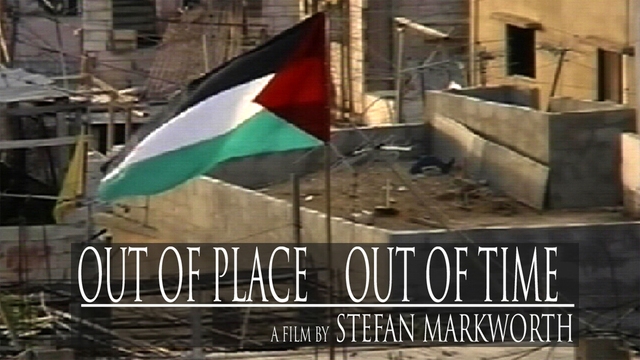Out of Place, Out of Time
What becomes of a stateless people?
 In the 1940s,100,000 people, forced to flee Palestine, came the Palestinian camp, Bourj el Barajneh in Beirut. But Lebanon did not welcome them with open arms. Confined to refugee camps, with few rights, they have now existed in a terrible limbo for 50 years. This insightful, character-led documentary takes us beyond media stereotypes to the reality of having nowhere to call home.
In the 1940s,100,000 people, forced to flee Palestine, came the Palestinian camp, Bourj el Barajneh in Beirut. But Lebanon did not welcome them with open arms. Confined to refugee camps, with few rights, they have now existed in a terrible limbo for 50 years. This insightful, character-led documentary takes us beyond media stereotypes to the reality of having nowhere to call home.
Music blares, people sing and dance. Today is Manar's wedding day and she's excited. True of any bride certainly but doubly true of Manar as her wedding is also her ticket to freedom. By marrying an Australian Palestinian, she will be able to leave Lebanon for the first time. Her brother, however, is not so fortunate. His desperate desire to leave has meant he will have to do so illegally.
Compared to its beginnings, when "we lived in tents, tied down by ropes, that would blow away when there was a storm", Bourj el Barajneh is hardly recognisable. A maze of streets and huddled buildings, the camp is now a sprawling mass. "It is like a villa for us" declares Abu Hassan. "We used to plant in Palestine and we are planting here on the roof. So from above it is like paradise".
But from below, the picture is altogether different. "I would like to become a lawyer", says 13 year old Samah, "but here in the camp and in Lebanon it is impossible for me to practice law". Considered foreigners by Lebanon, Palestinian refugees and their children are forbidden to work in over 70 professions. As a result work is scarce. More than 1/3 of those living in Bourj el Barajneh are registered 'special hardship' cases by the UN.
The situation is dire for the camp's young men. Unable to work, they cannot offer young women the security necessary to make marriage possible. Abu Hassan knows this all too well. "I used to have a girl called Fat-han. I loved her a lot". One summer, a man came from afar wanting to marry her. "I agreed, I said yes do it, go and have a good life. Your children will grow up in a nice way. I can't do this for you here. Impossible". So Fat-han left for Denmark.
The UN is the sole provider of education, health and social services in Bourj el Barajneh. The funds are limited so the quality of these provisions often falls short of what is needed. "I am stuck living in a room in the camp surrounded by flies, cockroaches, mice and rats", says Mohammad. Worryingly nothing seems set to change. Daily life has stagnated and become "very boring." Bassam confirms, "only time is changing in the camp".
Attitudes are beginning to mirror their environment. "Really, I don't dream" insists 32 year old Ghada, who slaves in a plastics factory all day. "If you lived like us, you would not dream either". Samah agrees, "I do not think about my future very often". Potential parents are even thinking twice before having children. Many feel that to bring a child into their world would be cruel and tantamount to insanity. And yet, the refugees are united in their suffering. "There is something very special here", says Sara. "The camp is not just a camp, it's a house". Through the hardship, community bonds are strengthened. Living in such close quarters means "we feel with each other", explains one refugee. Neighbours become parents and all the children are raised as one big, happy family. This community spirit reinforces the refugees' shared identity - being Palestinian. "I speak Palestinian and I feel Palestinian", states Samah. Perhaps it is this strong sense of belonging to a lost land that means all hope is not lost. "It will not be like this forever".
FULL SYNOPSIS
Attitudes are beginning to mirror their environment. "Really, I don't dream" insists 32 year old Ghada, who slaves in a plastics factory all day. "If you lived like us, you would not dream either". Samah agrees, "I do not think about my future very often". Potential parents are even thinking twice before having children. Many feel that to bring a child into their world would be cruel and tantamount to insanity. And yet, the refugees are united in their suffering. "There is something very special here", says Sara. "The camp is not just a camp, it's a house". Through the hardship, community bonds are strengthened. Living in such close quarters means "we feel with each other", explains one refugee. Neighbours become parents and all the children are raised as one big, happy family. This community spirit reinforces the refugees' shared identity - being Palestinian. "I speak Palestinian and I feel Palestinian", states Samah. Perhaps it is this strong sense of belonging to a lost land that means all hope is not lost. "It will not be like this forever".
